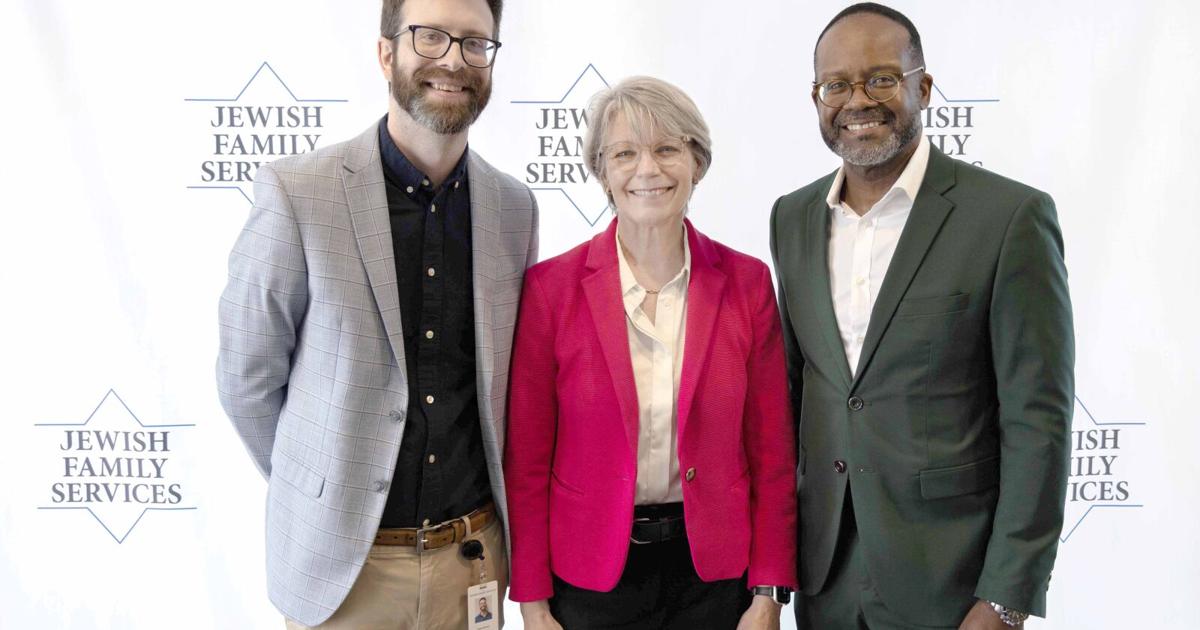
AT&T donates $65K to Jewish Family Services for digital workplace expansion | Local News
Decades ago, filling out a paper form was the most common method of applying for a job. Now, most employers expect job applicants to complete an online application. That poses a dilemma if a job seeker lacks basic computer skills. A Jewish Family Services initiative is helping to fill that need.
The Digital Skills for the Workplace program, launched two years ago, is helping hundreds of unemployed and underemployed people.
On May 7, Jewish Family Services celebrated its past success and ongoing efforts at an event held at its building in Columbus.
During the gathering of several dozen supporters, AT&T – one of its funding partners – announced a $65,000 contribution to expand the program. The telecom company is focused on bridging the digital divide in Ohio and the rest of the country, according to Sarah Briggs, AT&T director, external affairs.
“We work with organizations across the state on important and innovative collaborations,” Briggs told the Columbus Jewish News. “Jewish Family Services is one of the leading organizations in Columbus that is executing digital skills for the workplace. Our funding directly supports the program. It is focused on providing digital skills to Columbus residents to ensure that they have the tools necessary to compete in the 21st century economy.”
The initiative works closely with the Franklin County Digital Equity Coalition, Karen Mozenter, CEO of Jewish Family Services, told the CJN.
“The first goal of the coalition is to promote access to affordable Internet across Central Ohio,” Mozenter said. “The second goal is to develop sources of affordable technology. We’ve been piloting programs to make technology more affordable for local residents.”
In addition to employment-focused digital skills, the free program provides one-on-one digital coaching for older adults, beginner-level computer instructions for people from low-income households and digital skills community workshops. It has already succeeded in reaching many members of the target audience, including a single mom who wanted to get a better job, according to JFS. Her story, featured during the event, was a good example of what the coalition hopes to achieve, according to Chase Barney, digital coach at Jewish Family Services.
“She was looking to upskill and get a better job than what she had in the past,” Barney told the CJN. “We got her enrolled in Digital Skills for the Workplace immediately. She was able to build some skills with programs she had and products she had never used before like Microsoft 365 and Zoom and Google Workspace. And she was able to get a better salary than the hourly rate that she had before.”
In the example Barney described, the woman looking for a better job was previously a recipient of financial aid from the Ohio Works First program.
“It is geared to helping folks get job skills and work experience for people who have dependents,” Mozenter said. “Not only did she gain skills and get a good job, but it enabled her to get off of public benefits.”
The digital skills covered under the program cover a wide curriculum and address the need among a range of demographic backgrounds.
“It spans the age spectrum from very young all the way to older adults who are trying to get back into the workforce,” Barney said. “That requires technology skills that they haven’t acquired before. There’s an assumption that young people are experts at technology. But the digital skills you need are so diverse that while you might know how to use a smartphone, you may have never used Microsoft Excel or had to manage an Outlook calendar and all the things that an employer expects you to know how to do.”
Besides digital skills, many job seekers can’t afford to buy a basic laptop computer. That’s where another Jewish Family Services ally comes in. Connect Central Ohio, operated by the Franklin County Digital Equity Coalition, helps qualified low-income participants qualify for free devices. The AT&T funding will allow Jewish Family Services to continue its effort and reach even more Ohioans looking for better jobs, Mozenter said.
“We will continue to look for ways to expand that programming and meet that community need,” she said. “We will keep evolving our digital skills trainings beyond the Digital Skills for the Workplace. We have other workshops, and one-on-one digital skills coaching. We know the need is great. It’s there to get a job, to access health care, to pay bills, to connect with loved ones. It’s so important to have those skills, and that need is not going to go away. It is just getting more complex and even more necessary for all kinds of people.”
Bill Motchan is a freelance journalist.

